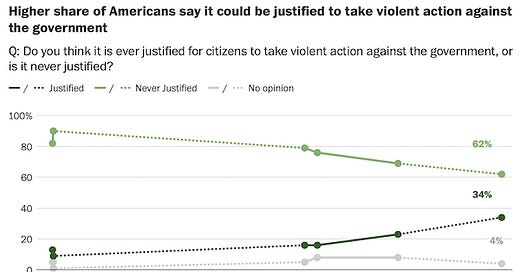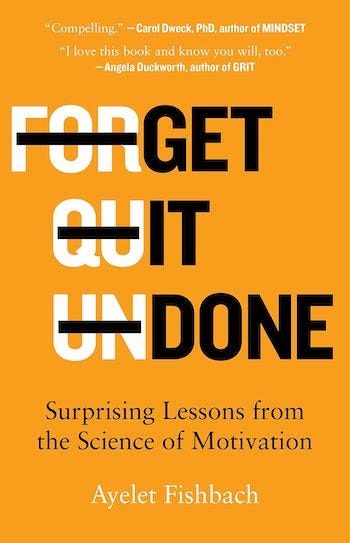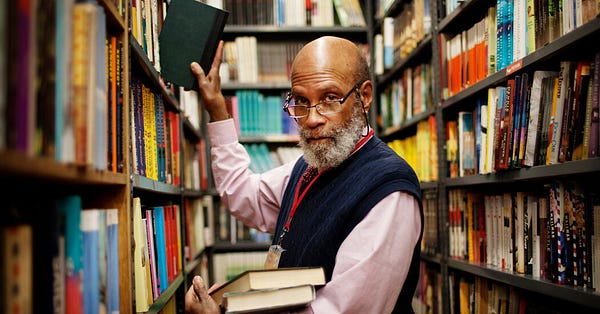Welcome to our weekend edition, a combination of the world, profiles, and good reads that you might not see during the week.
Is “saving time & staying smarter” part of your New Year’s resolutions? I can help:
The World
1 in 3 Americans say violence against government can be justified, citing fears of a political schism and the pandemic. One year after the deadly attack on the U.S. Capitol, Republicans and Democrats are deeply divided over what happened that day and the degree to which former president Donald Trump bears responsibility for the assault, amid more universal signs of flagging pride in the workings of democracy at home. The percentage of Americans who say violent action against the government is justified at times stands at 34%, which is considerably higher than in past polls by The Post or other major news organizations dating back more than two decades. The new survey finds 40% of Republicans, 41% of independents and 23% of Democrats saying violence is sometimes justified. (Washington Post-UMD Poll)
China joined U.S. allies including Japan and Australia in a new Asia-Pacific trade agreement that launches Saturday—with the U.S. watching from the sidelines. The new Regional Comprehensive Economic Partnership, or RCEP, will eventually eliminate more than 90% of tariffs on commerce among its 15 member countries, in what economists say will be a boon to trade in the region. It will also give China a more prominent role in setting rules of trade in the Asia-Pacific region at the expense of the U.S., according to some analysts. “This will be a grouping of countries that will work together and try to develop new rules and new standards,” said Wendy Cutler, vice president of the Asia Society Policy Institute and a former U.S. trade official. “[The U.S. is] moving in the other direction.” (Wall Street Journal)
The race to secure critical minerals is the new frontier in US-China rivalry. (South China Morning Post)
Global stock markets closed out 2021 with double-digit gains for the third year in a row, as easy monetary policy and a flood of fiscal stimulus helped propel an economic recovery from the pandemic. The FTSE All-World share index rallied 16.7% in dollar terms in 2021, surpassing the previous year’s 14.1% gain, but coming up short against the blockbuster 24% jump in 2019. (Financial Times)
Americans borrowed more than ever to buy homes in 2021: Mortgage lenders issued $1.61 trillion in purchase loans in 2021, up slightly from $1.48 trillion in 2020 and above the previous record of $1.51 trillion in 2005. (Wall Street Journal)
Airlines canceled more than 2,500 U.S. flights on New Year’s Day, many of them into or out of the storm-battered Upper Midwest, as wintry weather and staffing shortages amid a spike in coronavirus cases made Saturday the worst of several straight chaotic days for air travelers. As of early Saturday evening, 2,627 flights within, into or out of the U.S. had been canceled, easily the highest daily total in more than a week of havoc for airlines. (Washington Post)
How extreme climate conditions fueled unprecedented Colorado fire: Record warmth and extreme drought, intensified by climate change, set the stage for the devastating blaze. As the fire reaches 62% containment, Boulder County officials are working to find three people feared dead in fire. The current estimate of destroyed structures is 991, while 127 structures are damaged. (Washington Post, Boulder Daily Camera)
More Americans are moving into fire-risky areas: In the first year of Covid, migration increased into places that have seen recent wildfires — even as blazes intensify. Only 4.6% of U.S. households live in a census tract that’s been burnt by a wildfire since 2010. But their numbers have grown since the pandemic: Compared to the previous 12 months, the number of households that moved into areas with a recent history of wildfire climbed 21% between March 2020 to February 2021, according to a Bloomberg CityLab analysis of change-of-address data from Melissa, a global data intelligence and address analytics company, and wildfire burn areas from the National Interagency Fire Center. (Bloomberg)
Profiles & Reads
Dave Barry’s 2021 Year in Review — Vaccines, variants and supply chain woes: A look back at the past 12 months. Is there anything positive we can say about 2021? Yes. We can say that it was marginally better than 2020. Granted, this is not high praise. What was better about 2021? For one thing, people finally emerged from their isolated pandemic cocoons and started connecting with others. Granted, the vast majority of the people who connected with us this year wanted to discuss our car’s extended warranty. But still. Fortunately in 2021, we followed the Science, which decided that the coronavirus does not observe floor arrows. On the other hand, the Science could not make up its mind about masks, especially in restaurants. Should everybody in the restaurant wear them? Should only the staff wear them? Should people who are standing up wear them, but not people who are sitting down, which would seem to suggest that the virus can also enter our bodies via our butts? We still don’t know, and we can’t wait to find out what the Science will come up with for us next. Anyway, our point is not that 2021 was massively better than 2020. Our point is that at least it was different. A variant, so to speak. And like any year, it had both highs and lows. (Miami Herald)


How the science of motivation helps with New Year’s resolutions: Ayelet Fishbach, a professor of behavioral science, discusses the best way to set goals — and stick to them. A common mistake is for people to think about resolutions as “something they will not enjoy doing”, says Fishbach who is a professor of behavioral science and marketing at Chicago Booth business school and author of a new book, Get it Done: Surprising Lessons from the Science of Motivation. The mindset, she says, is: “I’m going to do what’s good for me and not what I enjoy doing.” This is a problem, however, because it creates an “empathy gap”, by which people do not understand how they might feel in future. “You need to find a way to pursue your resolution that is enjoyable, that is intrinsically motivating. People who do that can stick with their resolutions longer.” Not that we should only pursue goals that are immediately gratifying. “It is not going to always be fun. And for many of the things that are important in our lives, it will take some time before it’s fun,” concedes Fishbach. Instead, there might be feelings of pride or a runner’s high — but only after several weeks of trudging around the park.(Financial Times)
11 Years After Trying to Kill Each Other, a Marine and a Talib Meet Again: A Times reporter who once served in the Marines returned to the site of a major battle in Afghanistan to see what’s changed since the Taliban took over — and to meet a commander he once fought. The tea was hot. The room, oppressive and dusty. And the Taliban commander I sat across from in a bullet-scarred building in southern Afghanistan had tried to kill me a little over a decade ago. As I had tried to kill him. We both remember that morning well: Feb. 13, 2010, Marja district, Helmand Province. We were about the same age: 22. It was very cold. Mr. Gulab joined the Taliban in 2005, a year before I enlisted in the Marines. He had just lost two brothers in the fighting, both Talibs.
I grew up in the Connecticut suburbs. Mr. Gulab grew up in an isolated and mountainous part of Helmand Province. (New York Times)


‘The Fuse Has Been Blown,’ and the Doomsday Glacier Is Coming for Us All. New data suggests a massive collapse of the ice shelf in as little as five years. “We are dealing with an event that no human has ever witnessed,” says one scientist. “We have no analog for this.” One thing that’s hard to grasp about the climate crisis is that big changes can happen fast. In 2019, I was aboard the Nathaniel B. Palmer, a 308-foot-long scientific research vessel, cruising in front of the Thwaites Glacier in Antarctica. One day, we were sailing in clear seas in front of the glacier. The next day, we were surrounded by icebergs the size of aircraft carriers. As we later learned from satellite images, in a matter of 48 hours or so, a mélange of ice about 21 miles wide and 15 miles deep had cracked up and scattered into the sea. It was a spooky moment. Thwaites Glacier is the size of Florida. It is the cork in the bottle of the entire West Antarctic ice sheet, which contains enough ice to raise sea levels by 10 feet. The mélange that disintegrated was not part of the glacier itself, but a mix of icebergs and sea ice that had cozied up next to it. Still, the idea that it could just fall apart overnight was mind-blowing. (Rolling Stone)


Ben McFall, the longest-tenured bookseller in the history of the Strand, New York’s renowned bookstore, who for decades peered above his spectacles at a line of acolytes, tourists and young colleagues for whom he incarnated the store’s erudite but easygoing spirit, died on Dec. 22 at his home in Jersey City, N.J. He was 73. Mr. McFall enjoyed duties and perks not given to any other Strand employee. For much of his tenure, he was the only person in charge of an entire section. Not only that, the fief he governed — the fiction shelves — provides the Strand with the core of its business in used books. He determined the price of each used hardcover novel and book of stories and then affixed a Strand sticker to the dust jacket. On occasion, he’d assess a book newly purchased by the store and find inside his own handwriting with a price from the 1980s. His style of authority was offhand. He was rarely seen reading for pleasure, although he appeared to have studied most novels anyone had heard of. Surveying his mental map of the fiction shelves, he could name the books there, and cite the number of copies of them, at any given moment. “It seems like a feat, but if it were your house, you’d know where things are, too,” Mr. McFall told The New York Times for a 2013 profile. (New York Times)
Listen, Watch, Read
I’m introducing this new periodic feature to the Weekender — a recommended podcast, video & book. Let me know what you think (and send me your own suggestions) by replying to this email.
Listen: Recommended by STAT News — After entering the boundless podcast landscape in late 2020, “Maintenance Phase” has blown up in 2021, for good reason. Every other week, Aubrey Gordon and Michael Hobbes dissect American health and wellness in casual, entertaining, and completely rigorous conversations. It might have been an August episode on the body mass index that converted me from plain listener to devotee. Gordon and Hobbes trace the history of the BMI back to its roots, highlighting every inconsistent and unresearched decision along the way. As Hobbes says, it was “this completely arbitrary scale that was essentially arbitrary for more than 100 years, and then we kind of backfilled the science, because we had already agreed on this one number as the thing that had to be the center of our understanding of health.” By the end, I had a more comprehensive understanding of the scale than I’d ever gotten speaking to a doctor. (STAT News)
Watch: How Ted Koppel’s trip to ‘Mayberry’ turned into one of 2021’s most striking moments of TV. The veteran newsman and “CBS Sunday Morning” contributor explains how a seeming puff piece about “The Andy Griffith Show” turned into an unsettling snapshot of an angry America. (Washington Post)
Read: Most recent book lists have looked backwards — the best 2021 books in various categories. Today we look forward — it’s 2022:
Reading Resolutions: 12 Books to Start a Smart New Year. Get off on the right foot with these fresh approaches to better thinking—and living—at home and at work. (Wall Street Journal)
Books 2022: A pick of what's coming up. (BBC News)
Good News
Once a janitor, now the Bar Mitzvah photography king of Montreal: With a touch of chutzpah and “a little help from God,” Braulio Rocha, a Roman Catholic Portuguese immigrant, traded in his mop for a camera. “I remember thinking, ‘You’re just a janitor,’” he said on a recent day, recalling his big bris break as he sat in the pews of the synagogue’s imposing sanctuary. “But I said to myself, ‘It’s now or never.’ I guess you could say I’m the Canadian dream.” (New York Times)


A new coronavirus vaccine heading to India was developed by a small team in Texas. It expects nothing in return. “We’re not trying to make money,” said Peter Hotez of the Texas Children’s Hospital’s Center for Vaccine Development. “We just want to see people get vaccinated.” (Washington Post)


Want to get the newsletter every day? Here’s the magic button:






